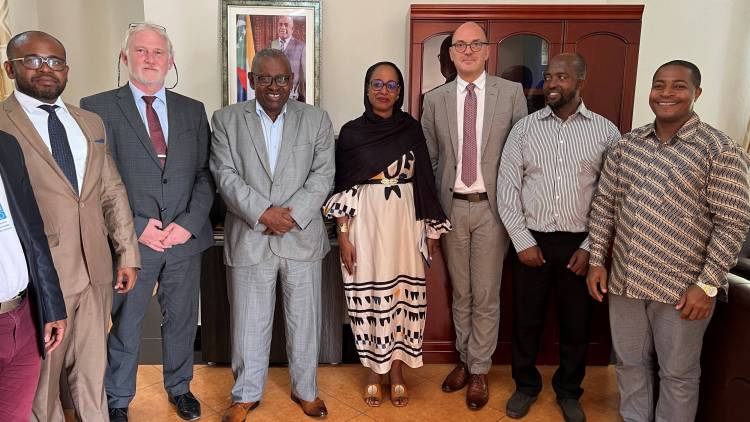The Comoros is increasing its cooperation with the IAEA and plans to use nuclear technology to address challenges in human and animal health. In November 2022, the IAEA conducted its first official mission to the Union of Comoros since the African island became an IAEA Member State in 2020.
“This gave us the opportunity to discuss ongoing projects in depth, as well as the prospects in the area of radiation protection,” said Loub-Yakouti Attoumane, Minister of Health, Solidarity, Social Protection, and Gender Promotion of the Union of Comoros.
The Comoros has shown a strong interest in technical cooperation, with a particular focus on projects related to health. Before becoming an IAEA Member State, Comoros participated in a project to put in place the appropriate measures for radiation safety and security. The country also prepared a comprehensive nuclear legal framework that is scheduled to be presented to the National Assembly for approval early 2023.
In the last two years, Comoros has actively connected with regional and international initiatives. In 2022, it became a party to an African regional cooperative agreement known as AFRA, designed to promote training and research in nuclear technologies, and it is already taking part in an AFRA regional project to combat malnutrition using stable isotope techniques.
Comoros is also contributing to the IAEA’s Zoonotic Disease Integrated Action (ZODIAC) initiative to help identify and prevent zoonotic disease outbreaks and has already identified its ZODIAC National Laboratory.
“It was immensely beneficial to visit the Union of Comoros and tour its facilities in person,” said Michel Warnau, Section Head in the IAEA’s Department of Technical Cooperation. “We see the strides that Comoros has already made towards comprehensive collaboration with the IAEA, and we look forward to the progress that can be made, especially in the areas of human health and radiation safety, thanks to nuclear techniques.”
The mission included visits with the Ministers of Public Health and Population, Energy, Water, and Hydrocarbons, Interior, Defence and National Education, Higher Education and Scientific Research, as well as a meeting with the General Secretary of the Government, the Ministry of Foreign Affairs, the Ministry of Agriculture and the President and Vice-President of the National Assembly to discuss national priorities and the future of technical cooperation projects with the IAEA.
The team observed construction progress on the new university hospital, which is scheduled for completion in late 2023. Comoros does not currently have any radiotherapy equipment, and cancer care capabilities are planned for inclusion in the new facilities.
Comoros has expressed interest in the support that the IAEA offers in the area of cancer care, including requesting an imPACT mission – a bespoke evaluation of the cancer situation in a country that is aimed at providing evidence-based recommendations for a comprehensive cancer control plan. 70 per cent of cancer-related deaths occur in low- and middle-income countries, and the Rays of Hope initiative aims to expand access to cancer care in these countries, especially in Africa.
As part of the mission, IAEA staff also paid a visit to the University of Comoros, where the IAEA has already delivered equipment to enable scientists to track information from facilities with radiation services.







